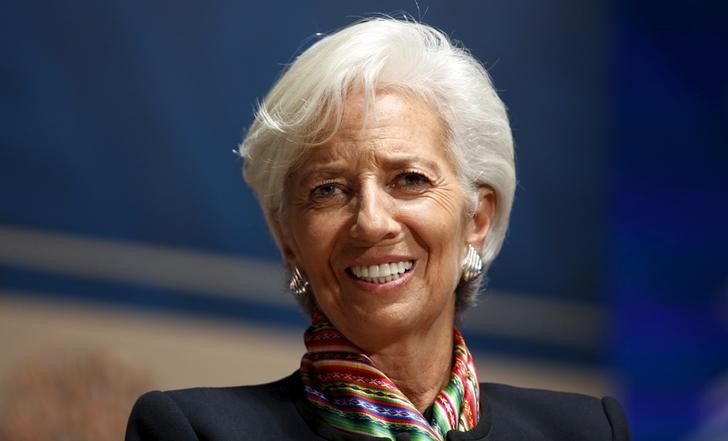(Bloomberg) -- “Nobody trusts you,” lawmaker Joerg Meuthen told European Central Bank chief Christine Lagarde, switching briefly to English during a tirade in his native German. “You should be aware of that.”
The far-right Alternative for Germany representative was railing about negative interest rates -- and while enduring bluster is par for the course for ECB presidents, the Feb. 6 encounter in the European Parliament also illustrated how politically charged that stimulus tool has become.
Policy makers insist the current deposit rate of -0.5% isn’t low enough for its damaging side effects, such as depressed returns at pension funds, to outweigh the broader economic benefits. That point is known by economists as the reversal rate, yet the fury that subzero borrowing costs incite among some citizens raises the prospect that there may be another limit: a political one.
“I have nothing against negative interest rates, and I think they can have a positive effect,” said Karsten Junius, chief economist at Bank J. Safra Sarasin. “But I currently have the feeling that we’re reaching a lower bound politically.”
Many officials would be loathe to admit publicly that such a key instrument for reviving inflation has a political shelf life. Not only would it restrict their options, it would also impinge on the institution’s independence. Like some of its peers, the ECB has come under increasing pressure from politicians keen to influence its strategy.
At the same time, policy makers have been noticeably reticent on the possibility of more easing since former president Mario Draghi left in October, weeks after the latest rate cut. Subzero rates are in their sixth year in the euro zone, and the fatigue is especially evident in countries with strong savings cultures.
In Germany, the bloc’s biggest economy, people typically squirrel away money in bank accounts rather than buy equities. Some with larger deposits -- generally over 100,000 euros ($108,000) -- even pay for the privilege. More than half of banks in a Bundesbank survey last year levied a charge on corporate deposits, and 23% penalized households.
When Draghi was recently awarded the country’s highest honor, mass tabloid Bild ran angry articles, including one claiming negative rates will cost Germans 24.5 billion euros in 2020 alone. It also repeated its notorious vampire moniker for him, “Count Draghila,” to the annoyance of German ECB board member Isabel Schnabel.
“Such images are hardly conducive to objective debate,” she said this month. “This public reaction far exceeds the usual degree of criticism about economic policy decisions. And it seems that negative interest rates are the chief cause of these deep feelings of discontent.”
Subzero rates are likewise unpopular in the Netherlands, where savers in 2019 endured the lowest returns on deposits in years, and the topic frequently features in Parliament. Austrian tempers are less frayed, but neither are there many fans.
“Permanently low or negative rates mean that savings are losing value -- and 40% of Austrian assets are in savings accounts,” the country’s finance minister, Gernot Bluemel, said in January. “It’s a catastrophe for savers.”
The U.K.’s Brexit is a cautionary tale for the ECB on the longer-term risks of public displeasure. A European Commission survey last year found support for the euro within the region was at 76%, a record high -- but trust in the ECB was much lower, at 43%.
“The ECB has to listen to citizens and get a sense of what are the effects” of its policy, said Guntram Wolff, director of the Brussels thinktank Bruegel. Still, it “should not let itself be driven by moods and popular feelings.”
Some countries are less bothered. Many have far higher home-ownership rates than Germans and benefit from lower borrowing costs. Spaniards tend to have mortgages linked to central bank rates, so can reap a direct benefit from cuts.
In France, the second-biggest economy, savers have enjoyed better returns than in Germany. Many use the Livret A, a savings account guaranteeing some yield. Still, that hit its statutory floor for interest in January, at 0.5%, prompting populist National Rally leader Marine Le Pen to decry the “perverse effects” of ECB policy.
Such noise may strike a chord with Lagarde, who in September told European lawmakers of the need to respond to “the threats of populism and nationalism.” While negative rates are intended to help the central bank hit its inflation goal -- something it has fallen short of for years -- the operating environment also matters.
“I do worry about the political backing for central banks disappearing, and with it, the independence of monetary policy,”’ Junius said. “That’s something central banks and the ECB should pay attention to.”
